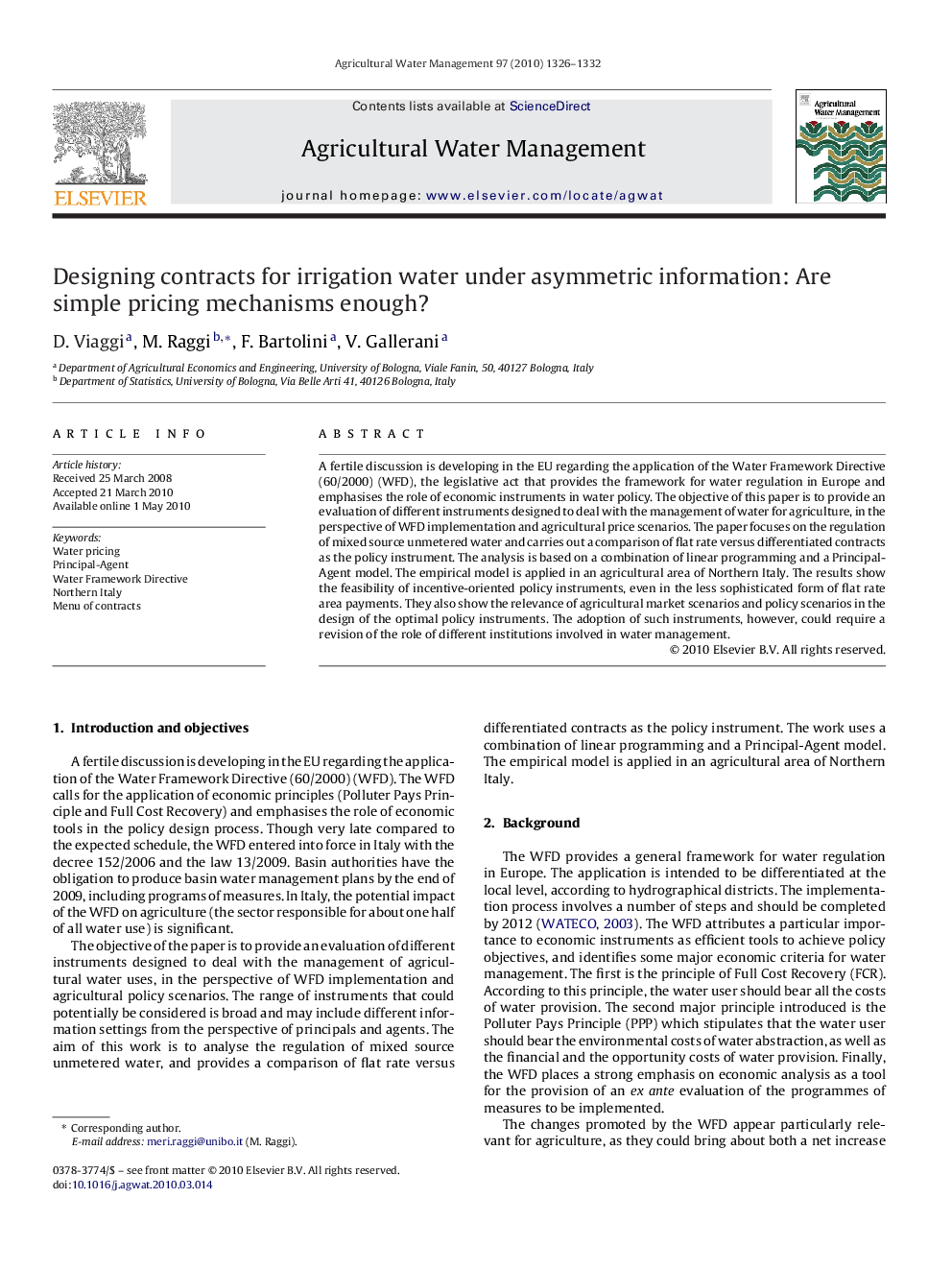| Article ID | Journal | Published Year | Pages | File Type |
|---|---|---|---|---|
| 4479786 | Agricultural Water Management | 2010 | 7 Pages |
Abstract
A fertile discussion is developing in the EU regarding the application of the Water Framework Directive (60/2000) (WFD), the legislative act that provides the framework for water regulation in Europe and emphasises the role of economic instruments in water policy. The objective of this paper is to provide an evaluation of different instruments designed to deal with the management of water for agriculture, in the perspective of WFD implementation and agricultural price scenarios. The paper focuses on the regulation of mixed source unmetered water and carries out a comparison of flat rate versus differentiated contracts as the policy instrument. The analysis is based on a combination of linear programming and a Principal-Agent model. The empirical model is applied in an agricultural area of Northern Italy. The results show the feasibility of incentive-oriented policy instruments, even in the less sophisticated form of flat rate area payments. They also show the relevance of agricultural market scenarios and policy scenarios in the design of the optimal policy instruments. The adoption of such instruments, however, could require a revision of the role of different institutions involved in water management.
Related Topics
Life Sciences
Agricultural and Biological Sciences
Agronomy and Crop Science
Authors
D. Viaggi, M. Raggi, F. Bartolini, V. Gallerani,
